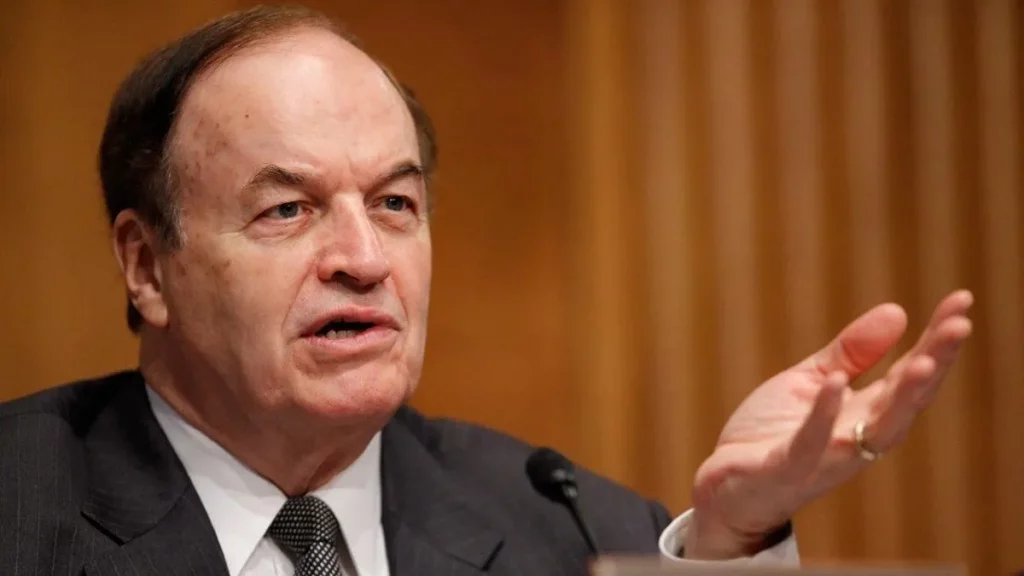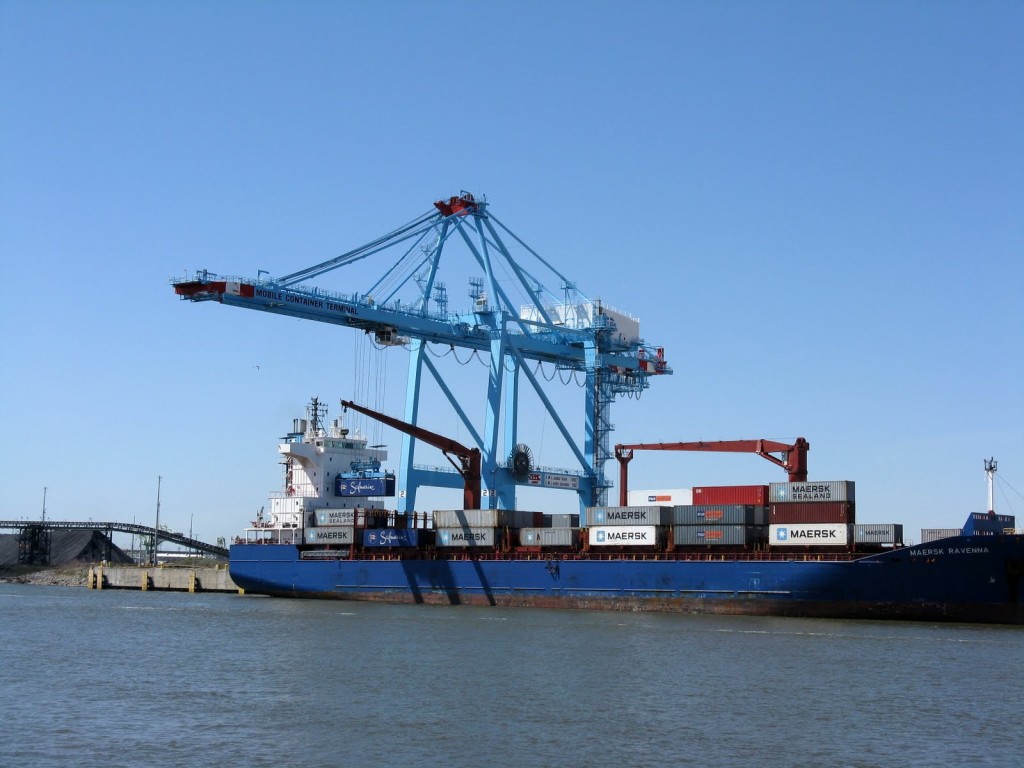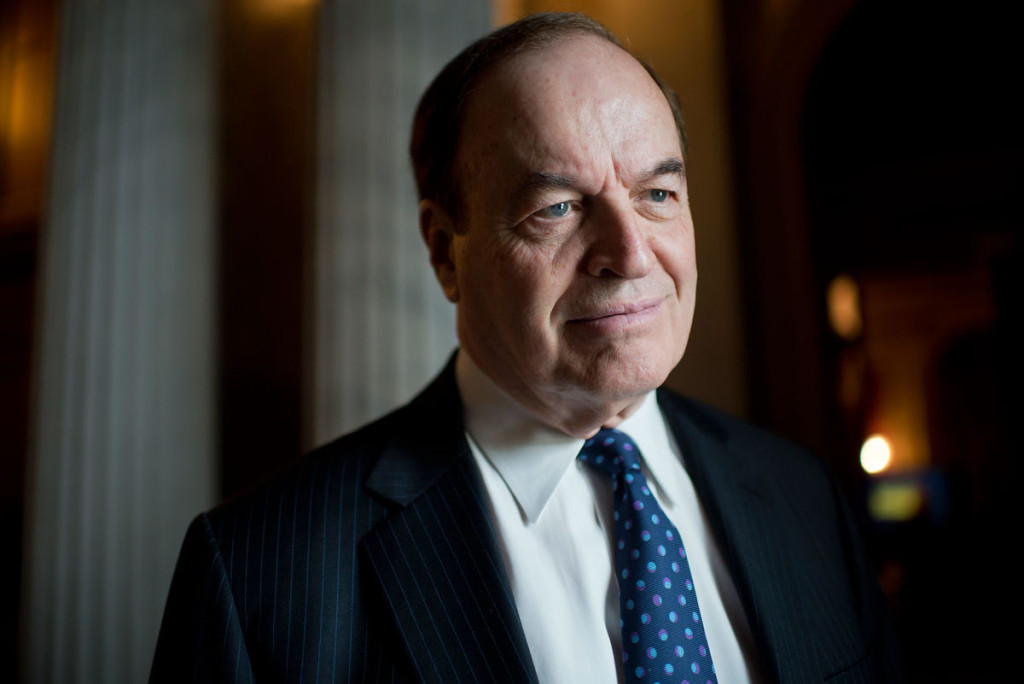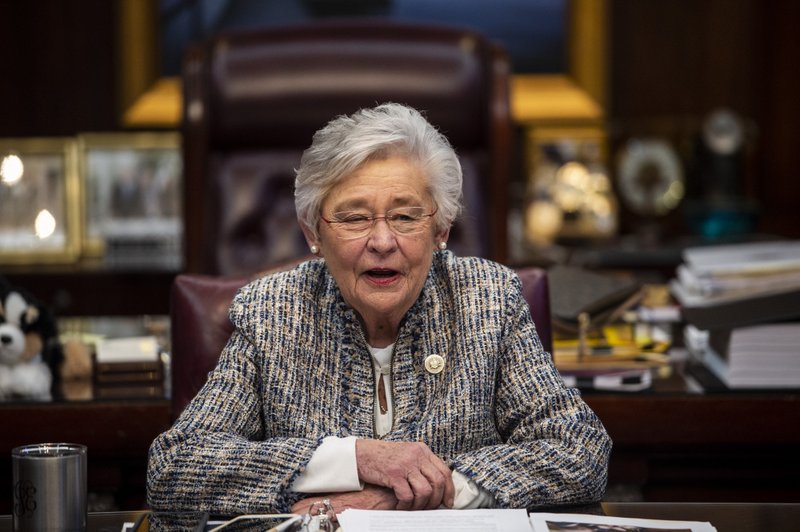Alabama Sen. Richard Shelby’s lasting legacy

If Alabama is prospering, thank retiring U.S. Sen. Richard Shelby. That’s the refrain from the coast to the mountains among those responsible for economic and industrial development. While representing the state in the U.S. Senate for six terms – 36 years – preceded by work as an attorney, roles in state government, and eight years in the U.S. House of Representatives, Shelby earned a reputation as one who can understand the issues, work across the aisle to get things done and look ahead with a clear vision of what the state can achieve in the future. Ask in Huntsville; they’ll tell you his support of space and defense was critical to that entire region. Ask in Montgomery or Tuscaloosa or Lincoln or Huntsville, and they’ll tell you federal dollars for roads and public works made it possible to attract an automotive industry that thrives today in the state’s heartland. Ask at the universities, and they’ll tell you that federal support helps educate today’s students to meet the needs of growing industries. And ask in Mobile and hear the story of phenomenal growth at the port – how it impacts the Port City and then sends goods on trains and interstates and inland waterways to reach the whole Alabama economy. And all of them will tell you that without Richard Shelby, the economy just wouldn’t be what it is today. Business Alabama asked key individuals around the state for their examples of Shelby’s impact. Here’s what they had to say. Chip Cherry President & CEO, Huntsville/Madison County Chamber of Commerce “Sen. Shelby has been a blessing to us in the sense that he has the ability to see how the different pieces of the puzzle are scattered about and what can be brought together to benefit both the country and the state.” Cherry’s favorite example is at Huntsville’s Redstone Arsenal, centerpiece of the space and defense work and more recently of the FBI’s Southern headquarters. “He saw the synergies between what was happening at Redstone and what the FBI was doing” and helped bring the FBI. The move “allows for collaboration among federal partners on the same campus,” he said. Shelby, he said, “has been a strong advocate, informing his colleagues of the value of what happens at Redstone and making the case for how investment there benefits the entire country. And that benefits us as a region. “I believe in my heart that he’s more of a statesman than a politician – able to work across party lines to make a case and build consensus. That’s an unusual thing to happen in D.C. these days.” Finis St. John IV Chancellor, University of Alabama System “Sen. Shelby recognized and strongly believed from early on in his career that education and higher education were the ways that the state could advance. He has been a tireless supporter of higher education, research, health care – all of which are integral to our mission at the University of Alabama System. “It’s hard to list all the ways he’s helped advance our mission, but nobody in anyone’s memory has been more important to that.” And why is higher education important to the state’s economy? “It’s the pipeline for the people that execute our economy,” St. John said. “If we do a better job at generating that raw material, then every entity in the state is better off, every business, government, all areas of the economy do better with higher equality results from higher education. “Every time you talk to a business leader right now, the biggest problem they face is workforce. Nobody has enough people, and they don’t have qualified people. Not only are we trying to address that with Alabama students but also by bringing in out-of-state students and then working with government and industry to entice them to stay in Alabama.” Shelby’s influence goes well beyond higher education and research funding, St. John noted. “It hasn’t been piecemeal, but comprehensive.” Shelby was a family friend as St. John was growing up, and he considers the senator “a dear friend, mentor and adviser, whose wisdom I’ve been very fortunate to benefit from for a long time.” Greg Barker President, Economic Development Partnership of Alabama “We’re in a global economy right now, so having somebody like Sen. Shelby, who is a constant advocate for the right federal policies that position the United States for growth and as a good place to do business, that’s paramount.” “He was an aggressive advocate for a wide range of elements that made the U.S. a better place to live and work. That’s where you start,” said Barker, who previously was an executive at Alabama Power. “When you think of business growth and development, you have to have the right infrastructure, and that infrastructure is expensive. It takes federal money to build roads and water systems and everything.” Shelby was particularly good at “making sure Alabama is aware of the federal programs and very competitive to be able to receive federal money and put it to good use for Alabamians.” Shelby, he said, “was a very distinguished and influential U.S. senator, and that put him in a lot of interesting rooms with interesting people – and he was consistently an advocate for Alabama, suggesting that people consider it for future growth for their company.” Barker especially respected the senator’s role in getting roadbuilding funds that enabled the establishment of Mercedes-Benz U.S. International in Tuscaloosa County and water system funding that enabled construction of the Honda plant in Talladega County. “I don’t think it’s an exaggeration at all to say that Alabama’s advanced manufacturing success – for the auto industry alone – is due to him.” Greg Canfield Secretary, Alabama Department of Commerce “From my perspective, what’s most impressive about Sen. Shelby’s legacy in Alabama is his impact on Alabama’s economic engines and the infrastructure that drives our economy.” Canfield called out examples across the state – the port with the most container traffic in its history; the universities with
Richard Shelby highlights importance of the Port of Mobile

A new study has emphasized the economic importance of the Port of Mobile. U.S. Senator Richard Shelby highlighted this new report in comments that Alabama’s senior Senator made on Twitter on Monday. “A new study reveals the Port of Mobile’s critical impact on the entire state of Alabama – including 300,000+ jobs and $85 billion in economic value,” Shelby stated on Twitter. According to the report, the port has seen incredible growth and is responsible for an estimated 300,000 Alabama jobs and an economic impact of $85 billion. The Port of Mobile is operated by the Alabama Port Authority. “I have long known that Alabama’s largest port could have a pivotal impact on the growth of our state,” Shelby continued. “Throughout my career, I’ve focused on projects that aim to position Alabama for long-term success, and the Port has been one of those priorities.” While he was the Chairman of the powerful Senate Appropriations Committee, Shelby obtained federal dollars to widen and deepen the shipping channel for the Port through Mobile Bay. The State of Alabama drew down those federal dollars by providing matching funds that were part of Governor Kay Ivey’s controversial fuel tax increase that passed the Alabama Legislature in a 2019 special session. The improvements to the shipping channel allowed for the port to accept the new larger Panama Canal container ships that hold more cargo than the previous generation of ships. The port’s overall economic impact has grown 217% since 2019. The port has also produced a 94% increase in jobs and a 225% increase in tax revenues to the State and local governments. “These results are cause for celebration throughout Alabama,” Shelby stated. “The impact that the Port of Mobile has already had on Alabama’s economy is remarkable. I am proud to witness this great news and believe these numbers will continue to improve. I have long known that Alabama’s largest port could have a pivotal impact on the growth of our state. Throughout my career, I’ve focused on projects that aim to position Alabama for long-term success, and the port has been one of those priorities.” “These numbers make it clear that the Port of Mobile is a tremendous asset to the State of Alabama. Economic activity at the port radiates across the entire state – whether it’s auto manufacturing, agriculture, logistics, space and defense, forest products, energy, or any of the myriad of other industries that make Alabama great, every corner of the state sees some benefit from the port’s work,” said John Driscoll, Director and CEO of the Alabama Port Authority. “We believe that the Port of Mobile is the most dynamic, compelling port in America, and as we look ahead to an expanded container terminal, a deeper and wider ship channel, intermodal rail, and inland ports, these numbers will only grow. While these results are a sign of the progress made to date, we know there is more room for growth in our future and look forward to continuing to deliver for our customers and the entire State of Alabama.” “The Port’s rise is attributable to everyone who has been involved in promoting its growth and the many ways it benefits Alabama,” Shelby said. “This is just the beginning.” To connect with the author of this story, or to comment, email brandonmreporter@gmail.com.
Richard Shelby secures $100 million federal infrastructure grant

Sen. Richard Shelby announced that the Mobile Airport Authority (MAA) and the Alabama State Port Authority (ASPA) have received a U.S. Department of Transportation (DOT) grant in the amount of $100 million to participate in the DOT Transportation Demonstration Program. The joint grant will help them participate in the DOT Transportation Demonstration Program to allow for the enhancement of existing infrastructure. The DOT investment aims to capitalize on and streamline aviation, maritime, rail, and highway infrastructure systems. It will also attempt to generate efficiencies in inventory and supply chain management. Since 2015, the Port of Mobile – the eleventh largest seaport in the nation – has grown its volume by 120 percent, making the gateway one of the fastest-growing container terminals in North America. The grant is one of the largest of ever rewarded to Alabama according to Shelby. “This is one of the most impactful federal grants during my time in Congress,” stated Shelby. “Mobile is uniquely positioned to become a major transportation hub, with infrastructure already in place for maritime, rail, aviation, and highways. For many years, I worked to create those conditions by dredging the Port of Mobile and improving the airport. This program will build on that vision. Our Gulf Coast and the entire state of Alabama stands to benefit immensely from this funding in ways we can only imagine. Mobile has a lot to offer, and I am thrilled that we are utilizing its existing infrastructure to create a new transportation hub and economic power source for the entire state.” According to Shelby’s press release, the program will improve the Port of Mobile’s freight container operations by first providing start-up for a dedicated inter-terminal connector with rail access to the Port Authority’s terminal railway and five Class I railroads. The project will also develop an adjacent, two-site Logistics Park that will support the long-term growth of an integrated, intermodal seaport, airport, and rail terminal network for domestic and international freight movement. Furthermore, the project will allow for the use of newer technology to move cargo while also reducing truck distances between the Port of Mobile and regional logistic centers throughout Alabama. John Driscoll, Director and Chief Executive Officer of the Alabama State Port Authority, praised Shelby’s efforts and leadership. “The timing of this grant could not be better,” stated Driscoll. “The port is progressing nicely on the channel modernization program, and we just closed out calendar year 2021 with unprecedented growth at our container intermodal facilities. As we move into our fourth container terminal expansion, this port is poised to deliver cost-effective, reliable, and efficient freight and intermodal cargo service for underserved logistics markets regionally and across North America. We’re deeply appreciative of the U.S. DOT funding opportunity and Senator Shelby’s leadership in modernizing our port and multi-modal transportation infrastructure to meet shipper needs and keep American commerce competitive globally.” “We owe a tremendous amount of gratitude to U.S. Senator Richard Shelby. This project would not be possible without his support and leadership,” said Elliot Maisel, Chairman of the Mobile Airport Authority. “This investment puts us closer to our goal of building a new terminal debt-free, and that’s exciting. By avoiding debt, we can keep costs low for airlines and pass those savings along to our customers.” The Mobile Airport Authority owns and operates Mobile Regional Airport (MOB), Mobile Downtown Airport (BFM), and the Brookley Aeroplex, generating $1.8 billion in economic value for Alabama.
Kay Ivey announces $231 million rail infrastructure project

Gov. Kay Ivey announced a proposed $231.6 million program of rail projects called the A-USA Corridor. The project aims to upgrade rail infrastructure in central and southern Alabama. Phase One of the A-USA Corridor project involves 12 specific track, signal, and yard improvements on Norfolk Southern rail lines between Mobile, Selma, and Birmingham. The first phase of the A-USA Corridor initiative involves a $71.6 million initiative to link the Port of Mobile with the McCalla Intermodal Facility near Birmingham with a 280-mile rail corridor. It will also link mega economic development sites in Etowah, Shelby, and Washington/Mobile counties, each totaling more than 1,000 acres. A fourth site in Jefferson County will see the development of a 104-acre site with up to a million square feet of warehousing. “Working together with the Port in Mobile to build out our infrastructure to move the commerce for Alabama and the greater southeastern region of the country must be one of our top priorities,” stated Governor Ivey. “Creating good port access to central Alabama is a key part of this initiative, and it can provide options for freight containers to reach new destinations inland, which our country has struggled with during the supply chain crisis. I am proud our state is looking ahead and investing in the Alabama-USA Corridor and the future jobs and economic opportunity it will bring.” The port’s rapid growth requires an upgrade to more modern and efficient freight and intermodal rail infrastructure. “The Alabama Port Authority welcomes this vital project as we address rapid growth in the port’s container intermodal and freight business lines,” stated John Driscoll, director and chief executive officer. “The Norfolk Southern rail improvements will bolster capacity, reliability, and market access through the Port of Mobile for regional supply chains.” The construction phases of the project will create an economic benefit for Alabama of $497.2 million in gross business activity, including $184.8 million in earnings to 4,247 direct and indirect Alabama workers. During construction $13.1 million in state and local taxes will be generated. The A-USA Corridor project will be a public-private partnership. Norfolk Southern will fund more than 50 percent of the project. Alabama is investing $5 million into the project, with the remainder coming from present and future federal Consolidated Rail Infrastructure and Safety Improvements Program (CRISI) grants through the Alabama Department of Transportation, in partnership with Norfolk Southern. “The A-USA Corridor is an innovative public-private partnership that will strengthen the nation’s supply chain at a critical time and boost the regional economy,” said Alan Shaw, president of Norfolk Southern. “We look forward to working with Governor Ivey and the Port of Mobile to make the A-USA Corridor an engine for job creation in Alabama for years to come.”


